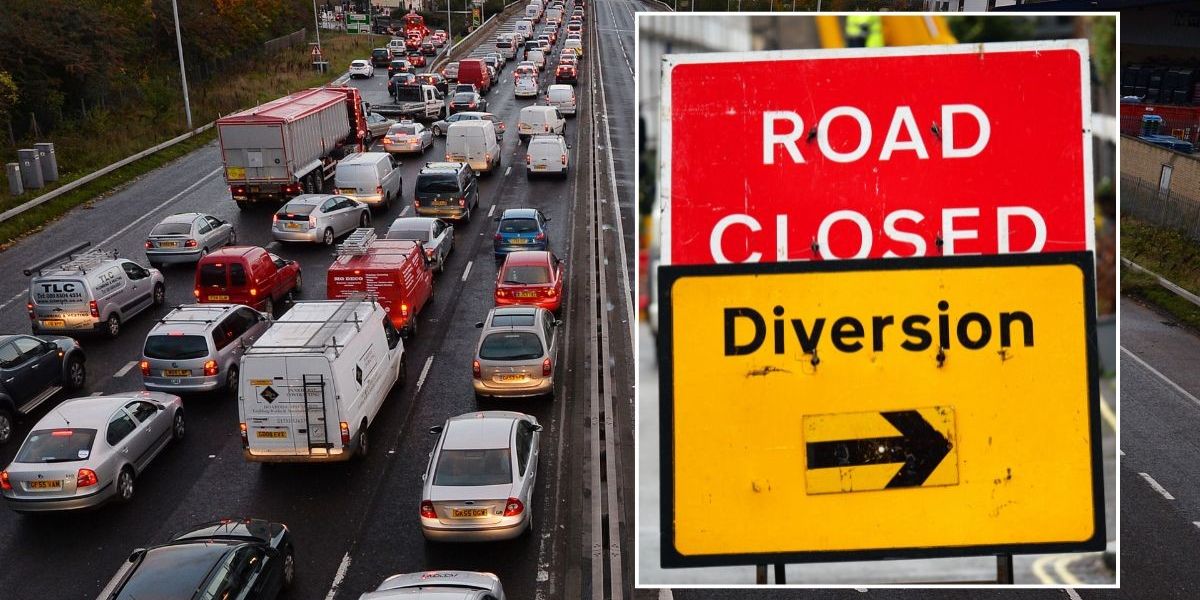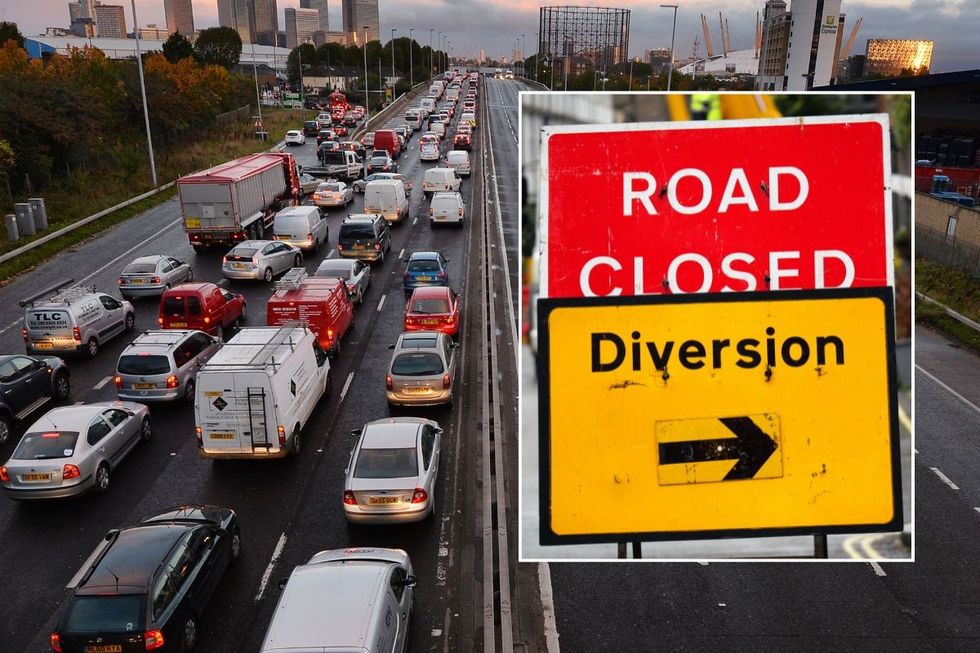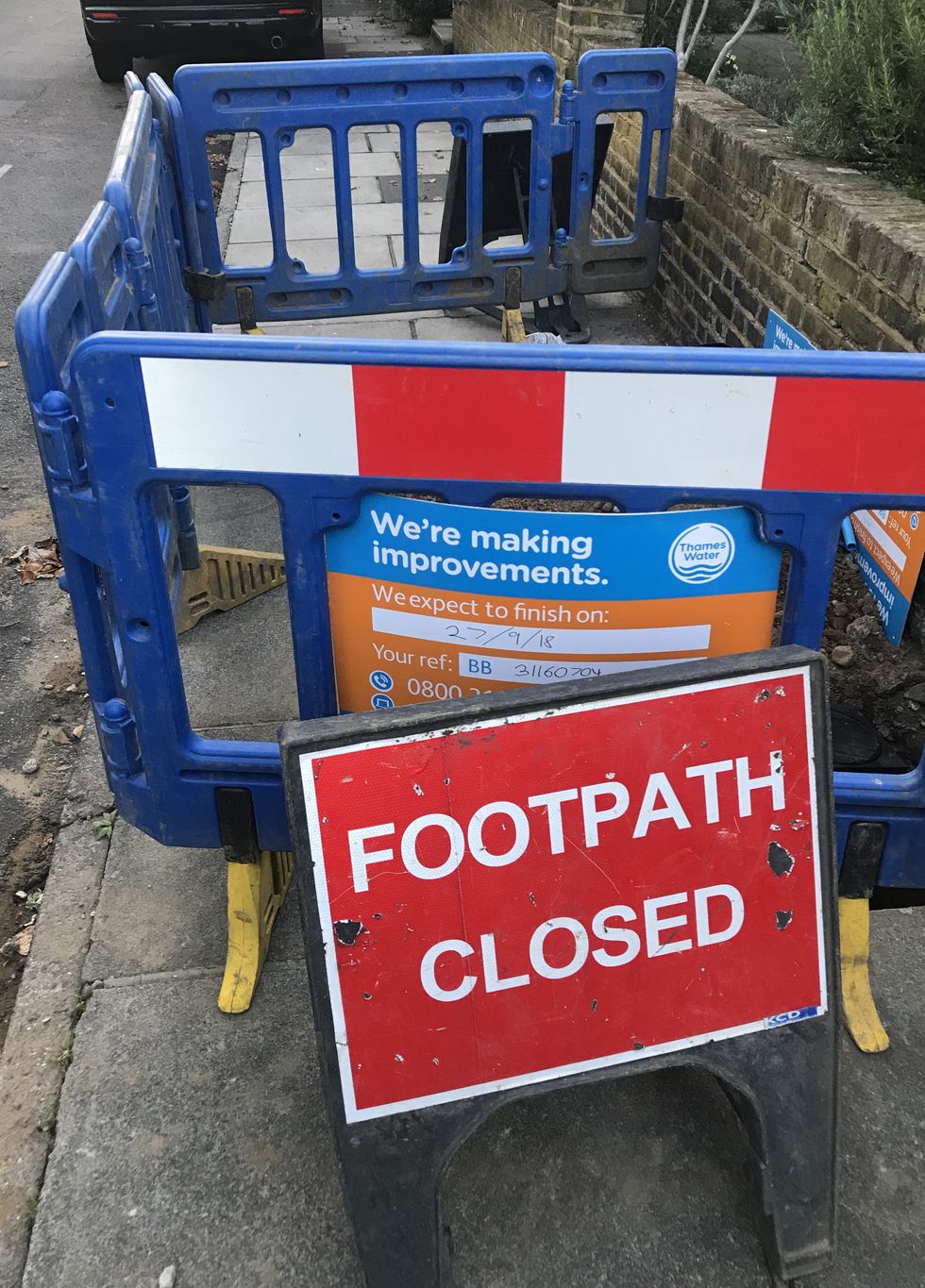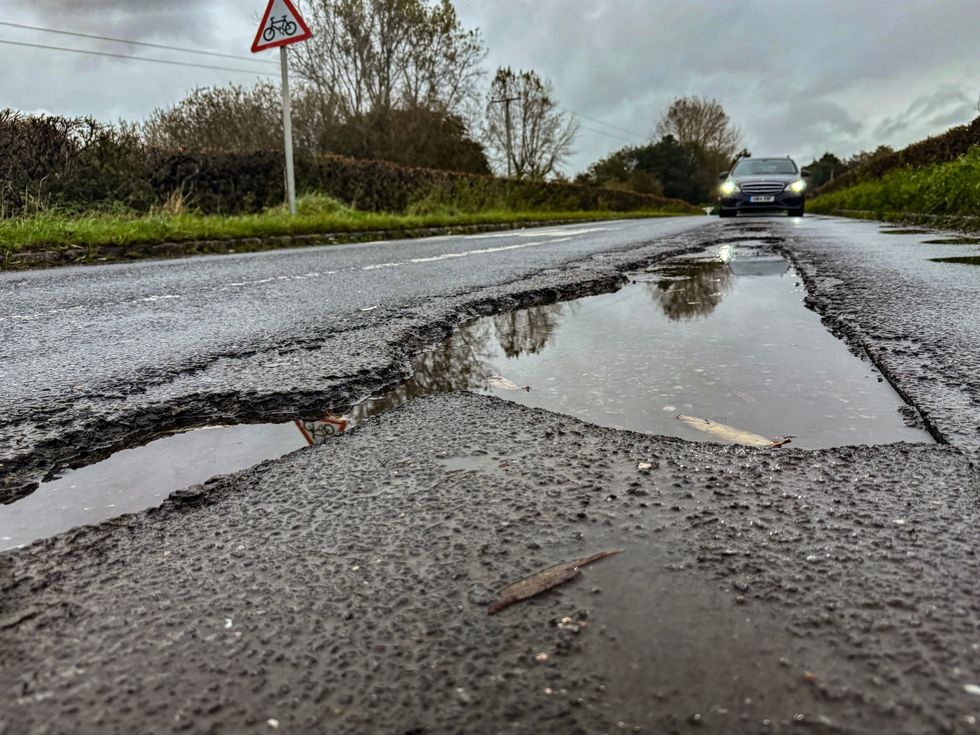



MPs are demanding that utility companies guarantee road repairs for five years after excavation work, to protect motorists from congestion caused by poor road conditions.
These new requirements would extend the current requirement of two years for standard works and three years for deeper excavations.
The Transport Committee has called for this extension to prevent council tax payers from bearing the cost of repairing potholes caused by poor remediation work.
Ruth Cadbury, chairwoman of the Transport Committee, said a pattern of repeated works can feel like a "recurring nightmare" for road users.

MPs have called for new laws to be introduced that would see utility companies make guarantees for the future of road repairs
GETTY
She acknowledged that ageing infrastructure requires maintenance and new cables and pipes are needed for housing developments, describing it as a "recurring nightmare".
The committee believes longer guarantee periods would help address the quality of road surface reinstatement work.
It has proposed establishing a new streetworks commissioner, similar to Scotland's roadworks tsar, to monitor performance and resolve disputes between utility companies and local authorities.
This watchdog would help manage the disruption caused by firms carrying out work on pipes and cables across England.

Proposals would see utility companies liable for five years
PA
MPs also recommended tighter controls on immediate permits that currently allow companies to dig up roads with minimal notice to local councils.
The committee wants to prevent the "infuriating occurrence of multiple roads being closed in one locality, or the same road being dug up multiple times in one year".
Better coordination between utility firms and housing developers is also being urged so they can work on the same stretch of road simultaneously rather than causing repeated closures.
The committee has recommended wider implementation of lane rental schemes that charge utility firms up to £2,500 daily to encourage quicker completion of roadworks.
These financial penalties are designed to focus companies' attention on completing excavation work within agreed timeframes.
Ms Cadbury said the committee's recommendations would make a significant difference if implemented. "Lane rental schemes should provide a financial incentive to complete works on time," she stated.
The proposals also emphasise improved cooperation between different utility companies and housing developers.
This coordination would allow multiple organisations to carry out work on the same road section simultaneously, reducing the need for repeated road closures that cause ongoing disruption to traffic flow and local communities.
 Kwik Fit estimates that drivers are paying £1.7billion a year to fix vehicle repairs caused by potholes KWIK FIT
Kwik Fit estimates that drivers are paying £1.7billion a year to fix vehicle repairs caused by potholes KWIK FIT
Jack Cousens, head of roads policy at The AA, supported the accountability measures, saying: "Utilities companies should be held accountable if they hand the road back to the council in a poor state of repair and be forced to fix their mistake."
A Department for Transport spokesperson acknowledged the disruption caused by streetworks, stating: "We wholeheartedly agree that streetworks are far too disruptive for drivers and that is why we have taken action to prevent the impact on drivers.
"We've cracked down on streetwork companies overrunning or leaving roads poorly repaired by ramping up fines and giving local authorities new powers to coordinate roadworks more efficiently and will put measures in place so 50 per cent of surplus lane rental funds must be invested into highway maintenance."
The DfT is investing £1.6billion this year to help councils resurface local roads and fix the equivalent of up to seven million additional potholes.
